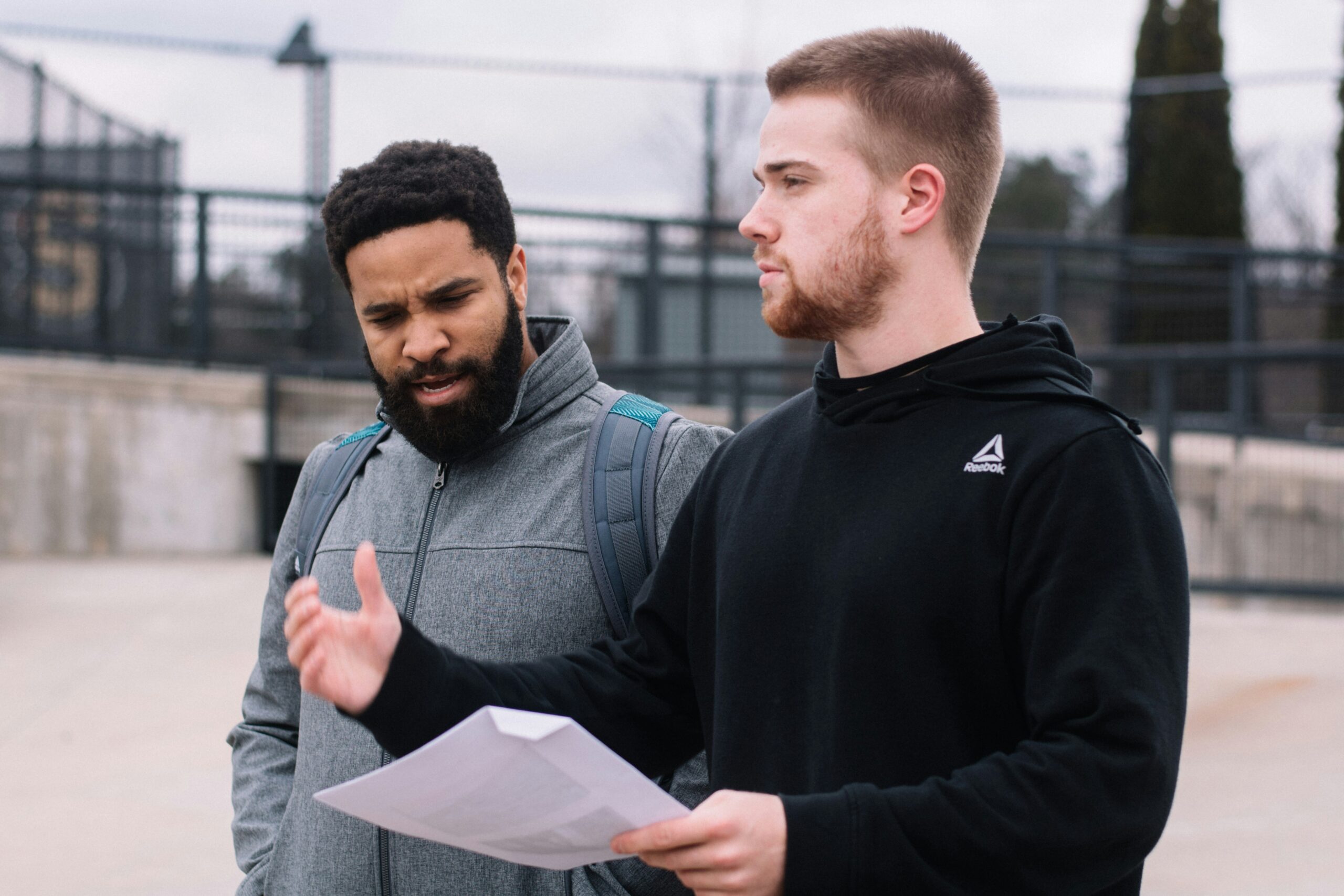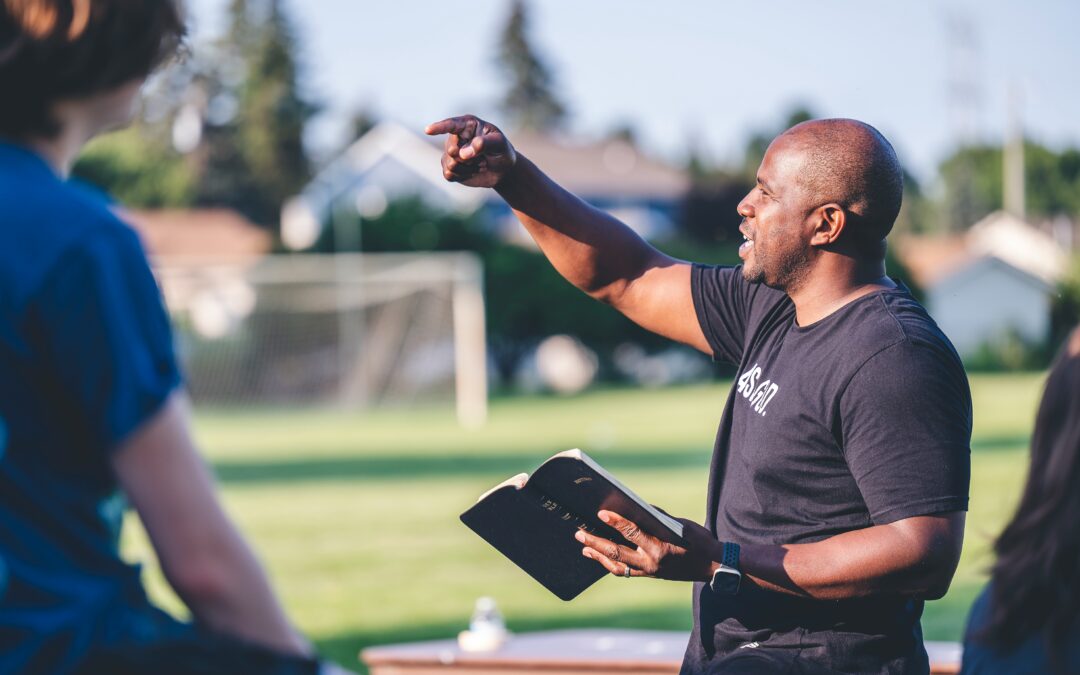Choosing the right career coach can feel overwhelming when there are so many options out there. I know how important it is to find someone who truly understands your goals and can guide you toward your next big step. The right coach can make all the difference in helping you gain clarity and confidence in your career journey.
I’ve learned that not all career coaches are created equal. It takes a bit of research and self-reflection to find someone who fits your style and needs. Whether you’re just starting out or looking to make a major change, finding the perfect match can set you up for long-term success.
Understanding the Role of a Career Coach

Career coaches use structured frameworks to guide career decisions. I see them help clients define career goals, identify transferable skills, and create actionable plans. They provide feedback, hold clients accountable, and offer market insights using current data from organizations like the International Coaching Federation (ICF).
Career coaches adapt their approach based on the client’s stage—early professionals might receive resume and interview practice, while experienced professionals get leadership and transition strategy advice. I often find they also support clients in overcoming career roadblocks, using assessments such as StrengthsFinder or MBTI.
The table below details common services career coaches provide, with examples and their relevance:
| Service | Description | Example | Relevance to Clients |
|---|---|---|---|
| Resume Optimization | Enhances resume to match industry standards | Editing tech resumes for ATS compliance | Early-career, job seekers |
| Interview Coaching | Prepares clients for various interview formats | Mock interviews for behavioral questions | Clients facing upcoming interviews |
| Career Assessment | Uses tools to identify strengths and interests | MBTI, StrengthsFinder assessments | Career changers |
| Action Planning | Develops step-by-step plans to meet career goals | 90-day job search roadmap | All clients |
| Market Research | Provides labor market insights to inform job choices | Sharing salary benchmarks | Mid-career professionals |
By clarifying this role, I help clients set realistic expectations before selecting any coach.
Key Qualities to Look for in a Career Coach

Choosing a career coach involves evaluating specific qualities that impact client growth and success. I focus on experience, communication, and proven results when considering potential coaches.
Relevant Experience and Credentials
Relevant experience and credentials demonstrate a coach’s ability to support varied career needs. I review formal certifications from organizations like the International Coach Federation (ICF) or Center for Credentialing & Education (CCE), which verify professional standards. Years of industry experience and specialized knowledge—such as tech sector guidance or executive coaching—often correlate with tailored advice. I verify educational background and ongoing professional development, as these signal up-to-date, evidence-based practices.
| Criteria | Example Credential or Experience | Authority/Source |
|---|---|---|
| Certification | ICF, CCE | ICF, CCE |
| Industry Experience | 10+ years in technology career transition | LinkedIn, company |
| Specialized Knowledge | Executive leadership coaching | ICF, SHRM |
| Continuous Learning | Recent workshops in behavioral assessments | Accreditation body |
Communication and Coaching Style
Communication and coaching style determine if I can build a productive rapport. Direct feedback, active listening, and customized communication help me progress quickly. I assess a coach’s method—whether they guide with structured plans, use motivational interviewing, or employ accountability check-ins. Introductory sessions, discovery calls, or testimonials may reveal how a coach adapts to different personalities and learning styles.
| Communication Method | Coaching Approach | Suitable For |
|---|---|---|
| Structured Planning | Step-by-step frameworks | Process-oriented clients |
| Motivational Interview | Reflective questioning | Career changers, indecisive |
| Accountability Check | Regular follow-ups | Clients needing discipline |
Client Success Stories
Client success stories validate a coach’s impact with measurable outcomes. I look for testimonials published on independent platforms like LinkedIn, which reference recent job placements, promotions, or industry switches. Clear data about outcomes—such as “80% of clients secured a job offer within three months”—provide evidence of effectiveness. I also check for client demographics and goals to match their journeys with my situation.
| Metric | Stated Result | Source |
|---|---|---|
| Job Offer Success Rate | 80% within 3 months | Client surveys |
| Promotion/Salary Increase | 50% received a raise post-coaching | Testimonial data |
| Career Transition Rate | 70% switched industries in one year | LinkedIn reviews |
Steps for Choosing the Right Career Coach

Selecting the right career coach streamlines progress toward your career goals. My decision-making process centers on clarity, evaluation, and proactive outreach.
Defining Your Career Goals
I articulate specific career objectives before contacting potential coaches. Goals may include job advancement, industry pivots, salary increases, or leadership development. Examples like “move into project management within tech,” “secure an executive-level role in healthcare,” or “boost negotiation skills for remote work” increase clarity. I document objectives with key skills, target industries, and timeframes to simplify coach matching.
| Career Goal Category | Example | Timeframe |
|---|---|---|
| Industry Change | From finance to data analytics | Within 6 months |
| Promotion | Senior manager to director | By year-end |
| Skill Enhancement | Improve leadership communication | Next quarter |
| Salary Growth | Negotiate 25% increase | After next performance |
Researching and Comparing Options
I research coaches using directories, LinkedIn, and professional networks. I compare profiles by certifications, specialization fields, years of experience, and client outcomes. Examples include reviewing ICF-accredited coaches specializing in mid-career transitions or reading testimonial quotes for tech industry placement. I track findings in a comparison table.
| Coach Name | Certification | Specialty | Experience | Notable Results |
|---|---|---|---|---|
| Jamie Lee | ICF, CCE | Leadership transitions | 12 years | 85% client promotion rate |
| Priya Desai | ICF | Entry-level placements | 7 years | 100+ placed in top 3 firms |
| Marco Rossi | Certified Career | Industry pivots: Fintech | 10 years | 70% landed new roles in 1 yr |
Conducting Introductory Consultations
I schedule short consultations with 2–3 shortlisted coaches. I assess communication style, familiarity with my industry, and willingness to customize their approach. I ask for example strategies, sample action plans, and references for verification. During calls, I note responses to questions on accountability process, typical coaching timelines, and assessment tools used. After the meetings, I evaluate fit based on responsiveness, transparency, and alignment with my goals.
| Consultation Criteria | Coach Response Example |
|---|---|
| Communication Clarity | Clearly explains step-by-step process |
| Industry Familiarity | References recent tech sector clients |
| Custom Strategy | Offers tailored 3-month plan |
| Accountability Approach | Provides progress check-ins biweekly |
| Tools & Assessments | Uses StrengthsFinder, MBTI, market data |
Common Mistakes to Avoid When Selecting a Career Coach
- Overlooking Verified Credentials
I check for recognized certifications, such as ICF or CCE, and confirm industry-specific experience. Many coaches advertise authority, yet without credentials, relevant expertise may be missing.
- Ignoring Alignment With Career Goals
I confirm the coach specializes in my target sector, such as finance or tech. Coaches with generalized approaches often lack tailored strategies required for industry-specific progress.
- Neglecting to Assess Track Record
I request data or client outcomes that indicate measurable success, including job offers and promotions. Some coaches share broad testimonials without supporting statistics that prove effectiveness.
- Prioritizing Price Over Value
I evaluate the return on investment, assessing session outcomes, rather than selecting the lowest-priced option. Lower fees may correlate with less experience or generic coaching methods.
- Failing to Request a Consultation
I schedule an introductory meeting to evaluate communication style and client rapport. Skipping this step risks selecting a coach with incompatible methods or limited listening skills.
- Ignoring the Coaching Methodology
I review the coach’s structured process, such as progress tracking and market research integration. Coaches missing defined frameworks may only offer generic advice without actionable plans.
Example Table: Checklist for Selecting a Career Coach
| Step | Details to Confirm | Questions to Ask |
|---|---|---|
| Certification Verification | ICF, CCE, or industry-specific certification | Do you hold current and relevant certifications? |
| Industry Experience | Years, fields worked, notable clients | Can you share work history tied to my industry? |
| Proven Outcomes | Quantifiable client results, testimonials | What measurable successes can you present? |
| Initial Consultation | 15–30 minute session, rapport | How do you tailor your approach to new clients? |
| Coaching Process | Framework description, feedback method | What structured methods do you use during sessions? |
Neglecting these factors leads to mismatches that waste both time and resources. Casinos, where high-stake decisions occur, also require calculated risk-taking based on expert advice and past outcomes. Similarly, I base my selection of a career coach on validated expertise, data, and specialized alignment, not chance.
Making the Most of Your Career Coaching Experience
Maximizing value from career coaching depends on active engagement and strategic goal-setting. I start every session by defining a clear agenda based on my documented career objectives. For example, if I’m targeting a leadership role or aiming for a sector switch, I outline these priorities in advance so the coach can tailor advice and frameworks specifically to my situation.
Tracking progress during the coaching journey requires consistent documentation of action items, feedback, and milestones. I use a shared tracking tool or progress log to monitor completed steps, skill development, and measurable achievements—such as updated resumes, new interview techniques, or networking conversations.
Table: Sample Progress Tracking Log
| Coaching Session | Objectives | Actions Assigned | Feedback Received | Achievement/Status |
|---|---|---|---|---|
| 1 | Resume refinement | Draft resume update | Needs stronger results focus | Revision completed |
| 2 | Interview skills | Mock interview | Improve STAR technique | Practiced, improving |
| 3 | Networking outreach | Connect with 3 peers | Strong communication noted | 2 new contacts initiated |
Following up between sessions strengthens outcomes. I review feedback from my coach before each meeting and reflect on application opportunities. When I face obstacles, such as limited responses from job applications or challenges with career clarity, I share specific examples and data with the coach to get targeted support.
Applying learnings after the coaching engagement is essential. I integrate newly acquired skills—like updated LinkedIn profiles, targeted resumes, or networking approaches—into my ongoing job search or professional routines. For leadership transitions, I consistently practice communication and team management strategies learned during coaching.
Periodically reassessing coaching outcomes ensures my career growth remains aligned with long-term goals. Every 3-6 months, I review progress by examining key metrics, such as job offers, promotions, expanded networks, or increased interview rates, using structured rubrics discussed with my coach.
Table: Key Metrics for Evaluating Career Coaching Outcomes
| Metric | Example Benchmark | Measurement Tool |
|---|---|---|
| Resume quality | 10% more recruiter contacts | LinkedIn/ATS reports |
| Interview invitations | 2+ additional invites/month | Application tracking |
| New professional skills | Certification completion | Certificate records |
| Network expansion | 5+ new industry connections | LinkedIn analytics |
| Job offers | At least 1 offer in 3 months | Offer letters |
Communicating openly with my coach and maintaining detailed records strengthens accountability and accelerates results. I optimize my career coaching experience by combining goal clarity, measurable tracking, and disciplined application of lessons in my daily professional trajectory.
Conclusion
Choosing the right career coach is a personal investment that can shape your professional future. I’ve found that taking the time to reflect on my goals and thoroughly vet potential coaches makes all the difference in finding someone who truly supports my ambitions.
Trusting my instincts during consultations and prioritizing a coach’s approach over price has always led to better outcomes. When I stay engaged and keep my objectives clear I get the most value from the coaching process and see real progress in my career journey.
Frequently Asked Questions
What does a career coach do?
A career coach helps clients clarify their career goals, identify strengths and gaps, and create actionable plans for growth. Coaches offer resume advice, interview preparation, and market insights while providing accountability and ongoing feedback tailored to your career stage.
How do I choose the right career coach?
Start by defining your career objectives. Research potential coaches by checking their credentials, client testimonials, and specialties. Schedule introductory consultations to assess their communication style and ensure their coaching approach aligns with your needs and goals.
What qualifications should I look for in a career coach?
Look for recognized certifications such as those from the International Coach Federation (ICF) or Center for Credentialing & Education (CCE). Additionally, review their industry experience, track record, and client testimonials to ensure they can effectively support your career goals.
What services can I expect from a career coach?
Common services include resume optimization, interview coaching, career assessments, goal setting, action planning, and market research. Coaches tailor these services to your unique career stage and objectives to maximize your career growth.
How can I tell if a career coach is effective?
Ask for client testimonials, success stories, and measurable outcomes like job placements or promotions. An effective coach should have a proven track record of helping clients achieve their career goals and positive feedback from previous clients.
Should I prioritize price when selecting a career coach?
No. While cost matters, prioritize a coach’s expertise, credentials, and proven results over price. Choosing based solely on price can result in poor value or limited outcomes. Invest in a coach who provides strong support and tangible progress.
How do I get the most out of career coaching?
Set clear goals, prepare an agenda for each session, and consistently track your progress. Actively engage with your coach, follow through on action items, and maintain open communication to maximize your results and long-term growth.
What mistakes should I avoid when choosing a career coach?
Avoid selecting a coach without verified credentials or proven results. Don’t ignore alignment with your career goals, overlook communication style, or skip the initial consultation. Also, avoid focusing only on cost rather than coaching value.
How do career coaches customize their approach?
Career coaches adjust their methods based on your experience level and goals. Early-career clients may get resume and interview prep, while experienced professionals receive guidance on leadership or transitions. Customization ensures support fits your needs.
How do I track my progress during coaching?
Document key action items and feedback after each session. Set measurable, time-bound goals and periodically review your achievements with your coach. This structure helps maintain focus, boosts accountability, and measures your coaching success.

